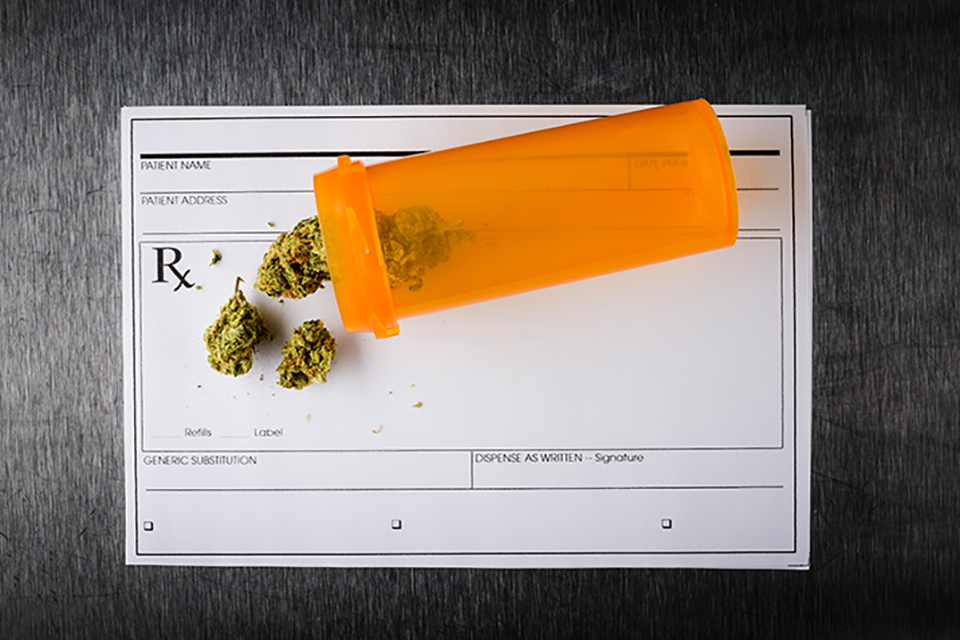
Anorexia nervosa is a serious mental health condition characterized by an intense fear of gaining weight and a distorted body image. It can have devastating effects on physical and emotional well-being. There has been growing interest in the potential use of cannabis for managing anorexia symptoms.
The Science Behind Cannabis and Anorexia
While it may seem paradoxical to turn to a substance often associated with causing “the munchies” to treat an eating disorder, the science behind cannabis lies in the body’s endocannabinoid system. Understanding how cannabis interacts with this system can help shed light on its potential therapeutic value in managing anorexia.
How Cannabis Influences Appetite and Mood
The endocannabinoid system (ECS) is a complex cell-signaling system in the body that aids in maintaining physiological homeostasis. This includes regulating appetite, mood, sleep, and pain, all of which impact anorexia.
Cannabinoids, which are the active compounds found in cannabis, interact with the ECS through two types of receptors: CB1 and CB2. When activated by cannabinoids like THC (delta-9-tetrahydrocannabinol), these receptors can promote hunger and influence mood regulation.
THC also triggers the release of the feel-good hormone, dopamine, in the brain. This can increase your mood and potentially offset some of the anxious or depressive thoughts that are common among individuals with anorexia. Additionally, CBD (cannabidiol), another prominent cannabinoid, has antianxiety and antidepressant effects, which are beneficial in managing the psychological aspects of anorexia.
Benefits of Cannabis for Anorexia
Cannabis strains rich in THC and CBD could serve as a two-pronged therapeutic approach for anorexia patients, addressing both the physical manifestations and psychological elements of this eating disorder.
Appetite-Stimulating Effects of Cannabis Strains
One of the challenges of treating anorexia is overcoming the fear and aversion to food. While traditional therapies offer dietary and psychological support, the use of cannabis could possibly add a new dimension to treatment approaches. Research suggests that certain cannabis strains, particularly those high in THC, can stimulate appetite.
While further research is needed to fully understand the potential of these appetite-stimulating effects, anecdotal evidence suggests that the use of cannabis could support individuals with anorexia in regaining their appetite and normalizing their relationship with food.
Managing Anxiety and Depression Associated with Anorexia
The psychological aspect of anorexia, often characterized by anxiety and depression, is a key factor in its development and progression. Beyond its potential to stimulate appetite, high-CBD strains of cannabis can have anxiolytic (anxiety-reducing) and antidepressant effects.
Numerous studies show CBD as a potential anxiety reducer and mood elevator. Its interaction with serotonin receptors in the brain might contribute to these effects. Therefore, along with traditional therapies, cannabis could assist in managing the psychological symptoms associated with anorexia.
Risks and Considerations
Exploring the potential of cannabis in anorexia treatment requires a balanced understanding of its potential benefits and limitations.
Potential Side Effects and Limitations
As with any substance, the use of cannabis is not without potential side effects. These may include dizziness, dry mouth, paranoia, and an increased heart rate. Chronic use has also been associated with cognitive impairment and potential dependency.
Another consideration is the variability in response to cannabis. Not everyone experiences the appetite-stimulating effects of cannabis, and some may find that it exacerbates anxiety rather than alleviating it. The impact of cannabis on mood can be unpredictable, with some people experiencing positive mood changes and others experiencing negative ones.
Legal and Ethical Considerations
The use of cannabis for anorexia treatment also raises legal and ethical considerations. Despite its significant potential, cannabis remains a Schedule I substance under U.S. federal law, with its use for medical purposes only allowed in certain states.
Anorexia is primarily a psychological disorder, and the ethics of using a psychoactive substance as a treatment method can be a complex issue. It’s critical to ensure that a person’s consent to use cannabis is informed and that the treatment is part of a comprehensive care plan that addresses all the complexities of the disorder.
Legal and Regulatory Landscape
While the potential of cannabis for treating anorexia is promising, its legal status varies from state to state.
Current Regulations on Cannabis Use for Medical Purposes in the USA
At the federal level, cannabis remains a Schedule I drug, making its use illegal. However, many states have passed laws allowing for medical cannabis use. Patients must have a qualifying condition to access medical cannabis, and anorexia is a qualifying condition in some states.
Advocacy and Support for Cannabis Use in Anorexia Treatment
Despite the legal hurdles, there is a growing movement advocating for wider acceptance and use of cannabis in the treatment of various medical conditions, including anorexia. This includes medical professionals, patient advocacy groups, and even some lawmakers.
You need to realize, however, that cannabis is not a cure-all. It’s a potential tool in a comprehensive treatment plan that should include psychotherapy, nutritional counseling, and medical supervision. If you or someone you know is struggling with anorexia, seek professional help and explore all treatment options.
The use of cannabis in the treatment of anorexia is still a relatively new field, and we need more research to fully understand its potential benefits and risks. However, for those living with this debilitating disorder, any path that leads to recovery is worth exploring.



